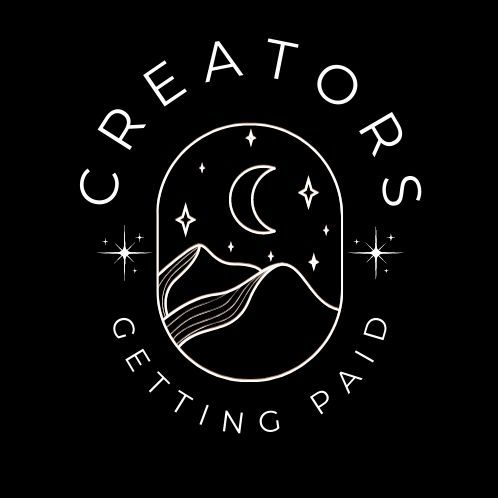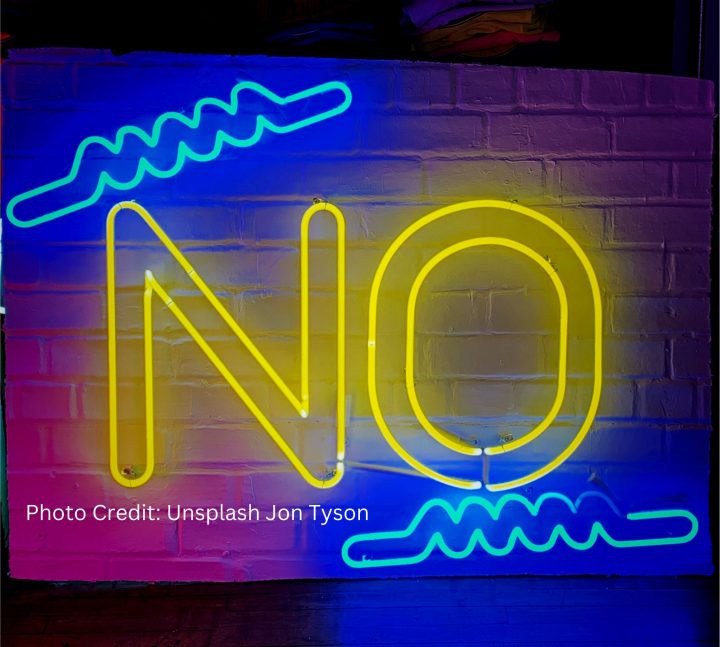When you’ve been in the content creation space for awhile or have developed what other people perceive to be an expertise you will begin to be asked to participate in “pick your brains.” No, nothing to do with zombies and everything to do with spending time sharing what you’ve learned often in ways that are uncompensated. For many content creators, they struggle with how to manage these requests on their time. Should you say “yes” or how do you say “no” in a way that is respectful while sticking with boundaries that you’ve set for yourself.
*In order for me to support my blogging activities, I may receive monetary compensation or other types of remuneration for my endorsement, recommendation, testimonial and/or link to any products or services from this blog. Please read my disclosure and privacy policy here.*
Welcome to the Brand Building Lab, I’m your host Michelle Jackson and I help online entrepreneurs design businesses that lead with empathy and intention. My goal is to help support entrepreneurs who are amplifying underrepresented creator content in online spaces as they thoughtfully make money along the way.
Podcasters make sure to subscribe to Podcasters Getting Paid, a resource that I’m curating that helps podcasters of shows receiving 10,000 or fewer monthly downloads monetize their content. Podcasters Getting Paid has a free and paid tier. The paid tier is $5 a month or $50 a year. I’ve shared a link this episode’s show notes.
Listen to the Episode
Related Posts
It’s Time to Say “No”
If you’re part of an underrepresented community that doesn’t have as many thought leaders of color (as I am) there can be a deep feeling of angst around setting boundaries that allow you to serve your community, thrive and be available for yourself. You can say “no” to pick your brains without pissing people off, but you need to have some systems in place before you move forward with a no “pick your brains” policy.
In my case, I found that I was beginning to spend a lot of uncompensated time educating people on the different questions and strategies that they were asking me about. This was at a point when I didn’t really have passive income coming in. Everything that I was doing was active.
- Freelance writing
- Brand Ambassador work as a side-hustle
- Affiliate marketing
- Social media management
And other projects for other people. The conflict that I was having was that I wanted to help other people. I just didn’t have the time to do especially at the point in my content creation journey that I was at. These requests were a distraction and I found that most people who picked my brains usually didn’t take action and that was frustrating to me because I gave my time that was limited to helping them out.
I learned a hard lesson.
So, I decided to figure out how I could be helpful to others without distracting from my mission and purpose. Here’s why I had to say “no” to pick your brains.
- Distracted from earning income-Each pick your brain session that someone casually suggested and I said “yes” to ended up becoming 1 to 2 hours of time out of my day. Multiple that by several pick your brains a month and that became a significant time suck.
- More often than not-What I shared wasn’t implemented. Which was really annoying. People weren’t at the implementation phase of their journey. They were still at the research and discovery (RD) part of becoming content creators. Which was fine. This meant that I had an opportunity to be of service without unnecessary meetings.
- I didn’t quit my job to say “yes” to endless meetings-I do not work a 9-5 and found that I was involved in WAY too many meetings for a person who was creating content and growing my own brand. These weren’t exclusively pick your brains meetings I was also attending:
- Networking meetings
- Meetings for projects that I was working on
- Mastermind meetings
- Online community meetings
- Meetings that I hosted for my own community
- Something had to give
If you’re trying to decide if you should let “pick your brains” go-start adding up all of your meetings during the previous months. If you’re landing on this post/podcast episode in January use one or two of the months between February through October as a way to figure out how often you’re meeting with people. I would also multiple those meetings by the amount you would like to earn per hour.
How to Say “No” to Pick Your Brains
Without Pissing People Off. It’s totally possible, you can stay connected to your brand mission and still be of service.
- Be honest-I literally tell people that I don’t do pick your brains. And every single time I’ve told someone this they’ve said the same thing “I respect that” Being nicely blunt and clear helps to eliminate problems. I’m setting a boundary. It’s a non-negotiable.
- Offered another way to help-I noticed that I was getting asked the same questions over and over again. Once I noticed a pattern, I created content that throughly addressed the question. Then I connected people to the free resources I’ve created. This could be a podcast episode, blog post or even a Twitter thread. I also schedule workshops, Ask Me Anythings that allow me to help several people at the same time “One to Many” vs. one to one to one.
- In-person opportunities-I love to go hiking, walking around and exploring. If you’re up for joining me in an activity like that, I’ll answer all your questions because I’m able to do something that’s really enjoyable to me at the same time.
- Designed Products-There’s a point when you’re needing to explain strategy more and that becomes a product. Strategy deeper explanations the “HOW” is a paid product. Here is an example of what this looks like in my business.
- Free content around podcast monetization
- Free/Inexpensive podcast resource “Podcasters Getting Paid”
- “Podcasters Getting Paid” The Course-Deeper levels of strategy and my time (office hours)
Sometimes people will ask for a “pick your brains” off-hand with no intention of disrespecting your time. And having set boundaries around what you can and cannot do energetically helps to manage those moments. Basically, it’s time to stop feeling guilty when setting boundaries within your business.

